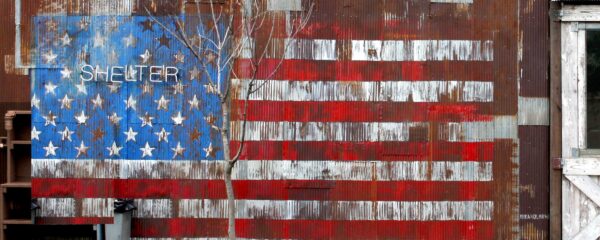Coalition Gains Immediate Halt to Unconstitutional Ordinance in Hazleton, PA
FOR IMMEDIATE RELEASE
CONTACT: media@aclu.org
NEW YORK - An unconstitutional ordinance passed by the Hazleton, PA City Council will not be allowed to go into effect according to a coalition of the American Civil Liberties Union, Puerto Rican Legal Defense and Education Fund, the Community Justice Project, the law firm of Cozen O’Connor and local attorneys George Barron, David Vaida, and Barry Dyller. Federal District Court Judge James M. Munley signed an Order, agreed to by the parties, that Hazleton will not enforce its so-called “Illegal Immigration Relief Act Ordinance” at this time.
“This order gives our clients and the local immigrant community legal protection that the ordinances will not be enforced,” said ACLU of Pennsylvania Legal Director Witold Walczak. “Also, if Hazleton attempts to pass a new unconstitutional immigration-related ordinance, this order gives us time to get back into court before the law goes into effect."
Under the order, the city has agreed to halt plans to implement the ordinance pending discussion and passage of a different immigration-related ordinance. At the same time the ACLU coalition has agreed not to file for a preliminary injunction against the original ordinance.
Under the ordinance, landlords and business owners would have been obliged to confirm that tenants and customers are legal residents before providing them with any service, even something as simple as selling them a soft drink. The ordinance defines certain persons as “illegal aliens” using a definition so broad that it actually includes lawful residents and naturalized citizens. There is no provision for training business owners and landlords how to decipher complex immigration papers.
"We are gratified that Hazleton has agreed to suspend this misguided and unconstitutional effort. Hopefully wiser heads will prevail and the city will realize that this and similar ordinances are counterproductive, discriminatory and impermissible,” said Omar Jadwat, a staff attorney with the ACLU Immigrants’ Rights Project. “Other cities should take note that we will vigorously challenge local ordinances that violate the Constitution or cause illegal discrimination.”
Enforcement of the ordinance, approved July 13, was slated to begin on September 11. Under the ordinance, property owners were subject to fines of more than $1,000 a day for renting to individuals classified as “illegal aliens,” and business owners could be fined and have their operating licenses suspended for hiring “illegal aliens” either knowingly or unknowingly. In addition, businesses would be barred from selling merchandise to “illegal aliens,” including basic necessities such as food.
The ordinance would also turn Hazleton into an “English-only” community in which city documents and other written communications would not be available in any language other than English unless specifically required by federal or state law. Also, documents from residents to city officials would have to be written in English.
Hazleton has publicly announced plans to enact another ordinance. If and when they do so, the coalition will assess whether to challenge the new law. Today’s order gives coalition lawyers time to ask the court to block any new law.
The ACLU and its coalition partners argue that the ordinance violates the U.S. Constitution for several reasons. First, under the Constitution only the federal government, not state or municipal governing bodies, has the authority to regulate immigration. Second, the “English-only” component of the law violates the First Amendment’s guaranteed rights to free speech. Finally, the ordinance also violates business and property owners’ due process rights under the Constitution because it is nearly impossible for them ensure compliance.
Walczak was pleased with today’s developments, but cautioned that the matter was not over: “While today’s court order provides our clients with important protections, Hazleton may pass another ordinance that is similarly flawed. We hope they can pass something that is constitutional, but if not we’ll be ready.”


